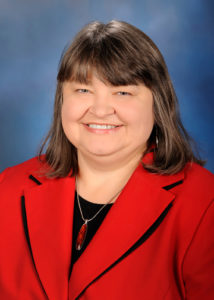SPRINGFIELD, Ill. – State Rep. Diane Pappas, D-Itasca, is working to guarantee critical mental and physical health services for new mothers with her support of a new law that requires the Department of Human Services (DHS) to provide specialized maternal health care for all women.
“I’m committed to building a stronger Illinois, and that means providing health care to everyone who needs it, regardless of their income. Many new mothers have difficulty paying for all the medical services they need, and are unfortunately under-served,” Pappas said. “Our current health system is not doing nearly enough to support women with their pregnancies, and it’s time for that to change.”
Pappas helped pass House Bill 5, which requires DHS to establish a system for providing maternal care to women who are pregnant, trying to get pregnant, or have recently given birth. The system will help women who require medical aid get to the right health care facility designed to treat their specific needs. This legislation was supported by both Democrats and Republicans and is now law.
Pappas has made lowering the cost of healthcare a key part of her legislative agenda; pushing for bills that reduce costs of medications, reign in health insurance premiums and preserve access to Affordable Care Act plans. Serious medical problems associated with maternity are not uncommon, but many go unaddressed because of the cost of caring for a new baby. In 2013, the Illinois Department of Public Health reported that almost 30,000 new moms experienced postpartum depression, in some cases for years after giving birth. Only 2 in 10 received medical treatment for their problem.
“The medical problems new mothers face are often incredibly serious, and can leave a lasting impact on both the mother and child,” Pappas said. “Issues like postpartum depression can make it extremely difficult to care for a newborn. Women need access to professional help to take care of themselves and their children, especially if they don’t have a strong support network at home. That help can’t be limited to the top income earners.”
